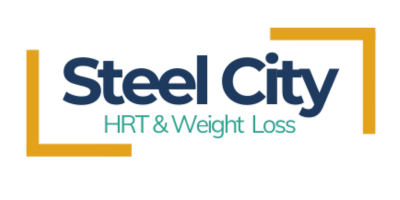
Tired All the Time? It Might Be Low Testosterone!
Feeling tired isn’t just an inconvenience—it can drain the joy out of life. If you find yourself hitting snooze multiple times, needing a midday nap to function, or struggling to summon the energy for activities you once loved, you might be chalking it up to age or stress. But what if there’s something more going on?
For men and women between the ages of 30 and 60, persistent fatigue, irritability, and even diminished physical strength could signal an underlying issue: low testosterone, or Low T. The good news? You don’t have to just accept this as your new normal. Testosterone replacement therapy (TRT) could be the key to reclaiming your vitality.
Let’s dive deeper into what Low T is, how it affects you, and why TRT might be the solution you’ve been searching for.
What Is Low Testosterone, and Why Does It Matter?
Testosterone isn’t just a “male hormone”—it’s a powerhouse responsible for critical functions in both men and women. For men, it fuels muscle growth, energy levels, and libido. For women, it plays a role in bone density, mood, and overall vitality. Naturally, testosterone production peaks in your 20s and starts to decline in your 30s. By the time you hit 50, your levels could be significantly lower.
Symptoms of Low T
How do you know if you might be dealing with Low T? Some common signs include:
Persistent fatigue, no matter how much sleep you get.
Mood swings or feelings of apathy.
A noticeable decrease in sex drive.
Loss of muscle mass and strength.
Difficulty concentrating or brain fog.
I’ll never forget when a friend, Mike, shared his struggles. He’s a 42-year-old father of two who always prided himself on being active and engaged. But over time, he started feeling sluggish. “I couldn’t even muster the energy to play with my kids,” he admitted. Turns out, his testosterone levels were well below normal—and addressing that changed everything.
The Hidden Costs of Fatigue and Low T
It’s easy to dismiss tiredness as part of modern life, but the impact can run deeper than you think. Fatigue stemming from Low T doesn’t just affect your energy; it can ripple into your relationships, career, and health.
Mental and Emotional Toll
Fatigue can leave you feeling irritable and disconnected. Strained relationships, especially with a spouse or kids, are often the unintended consequences. If you’re snapping at your loved ones or zoning out during conversations, Low T might be a silent culprit.
Physical Health Risks
Left unchecked, Low T can lead to more serious health problems. Studies show it’s linked to conditions like heart disease, osteoporosis, and even depression. The longer you go without addressing it, the harder it becomes to bounce back.
The Science Behind Testosterone Replacement Therapy (TRT)
Now that we’ve identified the problem, let’s talk solutions. Testosterone replacement therapy, or TRT, is designed to restore your hormone levels to what they were in your prime. It’s not about turning you into a superhero overnight—it’s about helping your body function optimally again.
How TRT Works
TRT can be administered in various forms:
Injections (typically once every 1-2 weeks).
Gels or creams applied to the skin daily.
Pellets inserted under the skin for long-term release.
Patches worn on the body for consistent absorption.
Each method has its pros and cons, and a healthcare provider can help you decide what works best for your lifestyle.
Addressing Common Myths
Let’s debunk some misconceptions about TRT:
“It’s only for bodybuilders.” TRT is for anyone dealing with hormone imbalances, not just athletes.
“It’s dangerous.” When monitored by a qualified provider, TRT is safe and highly effective.
“It’s a quick fix.” While results can be noticeable within weeks, TRT works best as part of a long-term health plan.
Real-Life Benefits of TRT for Middle-Aged Adults
Imagine waking up refreshed and ready to tackle the day. That’s what many TRT patients report after starting therapy. Here’s what you might experience:
Boosted Energy and Stamina
TRT helps replenish your energy reserves, so you can power through work and still have enough left for family time. One patient described it as going from “living in grayscale” to “seeing in full color again.”
Improved Mood and Mental Clarity
Low T is often linked to irritability and brain fog. Restoring testosterone levels can stabilize your mood and sharpen your focus, helping you feel more like yourself.
Enhanced Physical Strength and Libido
TRT can help rebuild muscle mass and improve workout recovery, making exercise more enjoyable and effective. Many patients also notice a rekindled interest in intimacy, strengthening their relationships.
Getting Started with TRT: What You Need to Know
If you suspect Low T is behind your fatigue, here’s how to take the first steps:
1. Recognize the Symptoms
Take an honest inventory of your health. Are you more tired than usual? Is your mood off? Are your workouts less effective?
2. Schedule a Blood Test
A simple blood test can measure your testosterone levels. Look for a reputable clinic that specializes in hormone health.
3. Consult a Specialist
Partner with a doctor who understands hormone therapy. They’ll assess your overall health, discuss risks, and tailor a treatment plan for you.
4. Stay Committed
Consistency is key. TRT isn’t a one-time fix—it’s a commitment to long-term wellness.
Frequently Asked Questions About TRT
Q: Is TRT safe for women?
A: Yes! While men’s needs get most of the attention, women also benefit from balanced testosterone levels. It can improve energy, mood, and bone health.
Q: How soon will I see the results?
A: Many patients report noticeable improvements within weeks, but full benefits often take a few months.
Q: Does insurance cover TRT?
A: Coverage varies, but many insurance plans do cover some forms of TRT. It’s worth checking with your provider.
Conclusion
Feeling tired all the time doesn’t have to be your new normal. If Low T is the underlying issue, testosterone replacement therapy could be the life-changing solution you’ve been looking for. Don’t let another day go by feeling less than your best.
Take action today: schedule a blood test, consult with a specialist, and explore whether TRT is right for you. Reclaim your energy, vitality, and zest for life—because you deserve to feel amazing.
Steel City HRT and Weight Loss is a clinic that provides safe and affordable hormone replacement therapy (HRT) and weight loss to men and women in Pueblo, Colorado. If you have any questions or would like to schedule an appointment to discuss treatment don't hesitate to call, text, or email at [email protected] or (719) 669-4223.
